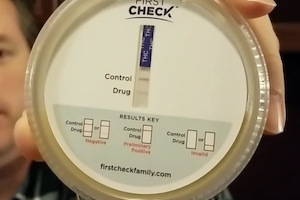What Conditions Can CBD Help With

One of the reasons I think CBD is so exciting is that it appears to be helpful for many conditions that so many people suffer with. Given that it’s so helpful in so many ways, I thought it would be useful to make a post about all the conditions CBD is helping people with.
What can CBD help people with? The World Health Organization published a thorough report of CBD in November 2017 in which it listed 17 different conditions for which CBD may be helpful. The list includes:
- Alzheimer’s Disease

- Parkinson’s Disease
- Multiple Sclerosis
- Huntington’s Disease
- Hypoxia-ischemia Injury
- Pain
- Psychosis
- Anxiety
- Depression
- Cancer
- Nausea
- Inflammatory Diseases
- Rheumatoid Arthritis
- Bacterial Infection
- Inflammatory Bowel and Chron’s Disease
- Cardiovascular Diseases
- Diabetic Complications
Now that CBD is becoming more widely available, more people are able to tell their story, and groundbreaking research is coming out on the topic, it is becoming more clear that CBD holds great promise for many people. In this article, I will attempt to touch briefly on each of these conditions and how CBD may be helpful. While the research is very preliminary on most of these conditions there are tons of people who can vouch for its affectiveness.
How could CBD possibly help all of these conditions?
First of all, it’s a reasonable question to wonder how one chemical/drug derived from a plant found in nature can possibly provide benefits for all the conditions listed above. The answer lies in the fact that our bodies naturally have a system of neurons and receptors all over our body called the Endocannabinoid System. This system plays a role in the following processes of the body:
- Memory
- Appetite
- Energy Balance and Metabolism
- Stress Response
- Immune Function
- Female Reproduction
- Autonomic Nervous System
- Analgesia
- Thermoregulation
- Sleep
- Physical Exercise
As you can see the Endocannabinoid System is widespread throughout the body. CBD interacts with the Endocannabinoid System, helping it function, and therefore can have an influence over so many conditions in the body.
Alzheimer’s Disease
Alzheimer’s Disease is classified as a neurodegenerative disease. The disease starts out slow and progresses fast as time goes by. As the disease progresses the brain goes through many physical changes such as shrinkage of the cerebral cortex, severely enlarged ventricles (cavities), and shrinkage of the hippocampus. The results of these changes usually include loss of short-term memory, problems with language, moodiness, lack of motivation, getting lost and confused, change in behavior, loss of bodily function, and ultimately death.
While CBD certainly isn’t a cure for Alzheimer’s it may be helpful in treating the disease for several reasons. First, it can help with anxiety, agitation, and aggression. CBD also exhibits significant anti-inflammatory properties. Recent research has shown that anti-inflammatory drugs help prevent the onset of Alzheimer’s. CBD has also been shown to help prevent apoptosis of cells. Apoptosis is when a cell dies. It’s possible that CBD may help slow this process in brain cells.
Parkinson’s Disease
The cause of Parkinson’s disease is not really known. But it is another neurodegenerative disease that progresses over long periods of time. Symptoms may include tremors/shaking, rigidity of the limbs, and problems with walking and balance. CBD has shown to slow down the attack of the dopamine center of the brain as well as provide overall neuroprotection. It also helps reduce agitation, nightmares, and aggressive behavior in patients.
Multiple Sclerosis
Multiple Sclerosis (MS) is a disease the disrupts the flow of information within the brain as well as between the brain and body. MS can be very unpredictable and often a disabling disease. In mice, CBD has been shown to slow the progression of the process that removes the insulation of the neurons in the brain. Also the anti-inflammatory and immunomodulatory properties of CBD help with MS.
Huntington’s Disease
Similar to the diseases mentioned above, Huntington’s Disease is another neurodegenerative disease. This disease is passed along as a fatal genetic disorder. The disease leads to a progressive breakdown of nerve cells in the brain leading to changes in behavior, loss of physical abilities, and ultimately death. CBD has been shown to be neuroprotective and have antioxidant properties in mice with Huntington’s Disease. Very little information is available on humans. What information is available did not show any significant differences but more work is obviously needed.
Hypoxia-ischemia Injury
Hypoxia-ischemia injury is caused by lack of oxygen to the brain. This can be due to any form of incomplete suffocation such as partial drowning, cardiac arrest, and respiratory arrest as well as exposure to gases that severely limit the availability of oxygen to the brain. CBD is helpful due to its neuroprotective properties and its ability to prevent neuron stress during low oxygen situations.
Pain
Pain is such a broad topic. But this is referring to neuropathic pain (pain caused by damage to the nervous system.) CBD has been shown to provide such pain relief in patients who have become resistant to other medications.
Psychosis
Psychosis is a severe brain disorder in which the patient thoughts and emotions are so impaired that they lose contact with external reality. In animals induced to experience schizophrenia, CBD has been shown to attenuate (reduce) the behavioral responses of the subjects. CBD has also been shown to have anti-psychotic properties on other drug-induced psychosis.
Anxiety
Anxiety is an umbrella term for many forms of anxiety that ultimately produce feelings of nervousness, fear, apprehension, and worrying. The manifestations of anxiety can be extremely different for different people. But CBD has been used by many people who suffer from various forms of anxiety. They report a reduction in muscular tension, restlessness, fatigue, improved ability to concentrate, and improvement in social interactions. A quick search of YouTube can produce tons of videos of patient testimonials.
Depression
Depression is becoming more common in society. Suicide rates are increasing. There are many triggers of depression and it is a complex issue. CBD has been shown to exhibit anti-depressant properties.
Cancer
Cancer is such a huge topic that almost everyone has been affected by. There are countless types of cancer and individuals with cancer need professional medical treatment to have any hope of survival. The role that CBD will play in cancer treatment is still very early. However, it has been shown to slow the progression of a large range of cancer types. CBD has also been shown to induce cancer cells to die through natural processes.
Nausea
This is another broad topic that can be caused by so many things. But CBD has been effective at relieving or reducing nausea in people. This can be particularly helpful in chemotherapy patients who are suffering from loss of appetite due to nausea associated with the drugs they take to fight cancer. For some, CBD has been helpful in reducing nausea and regaining an appetite.
Inflammatory Diseases
Again, inflammatory diseases are a broad topic. Examples include allergies, asthma, autoimmune diseases, coeliac disease, hepatitis, and inflammatory bowel disease. This has been mentioned several times in this post but CBD exhibits significant anti-inflammatory properties by inhibiting the pathways that lead to inflammation.
Rheumatoid Arthritis
Rheumatoid arthritis is an autoimmune disease where your bodies immune system begins to attack your own bodies tissues. This can lead to severe pain, enlarged joints, and eventually loss of bone mass and joint deformity. The progression of Rheumatoid arthritis is supported by a type of protein called Tumor Necrosis Factor-Alpha (TNF-α). CBD has been shown to inhibit the activity of TNF-α in animal studies.
Infection
CBD shows anti-bacterial properties against methicillin-resistant Staphylococcus aureus (MRSA). This is an extremely difficult organism to destroy and has been in the news repeatedly as an all too common infection that patients are getting while in the hospital. CBD has been shown to be just as effective at fighting MRSA as many very strong antibiotics.
Inflammatory Bowel Syndrome and Crohn’s Disease
Crohn’s disease is a major form of inflammatory bowel syndrome (IBS) in which any part of the gastrointestinal tract from the mouth to the anus may become inflamed leading to all sorts of uncomfortable and stressful symptoms. CBD has proven to be effective at inhibiting the release of TNF-α (mentioned above under Rheumatoid Arthritis) leading to a reduction in the disease activity index for Crohn’s disease.
Cardiovascular Diseases
During a cardiac event such as a heart attack, blood flow is restricted from getting to all parts of the heart. This lack of blood flow leads to a lack of oxygen to the affected heart tissues. This leads to the death of these tissues. CBD has been shown to reduce the size of the area of dead tissue through it’s anti-oxidant and anti-inflammatory properties.
Diabetic Complications
Diabetes can lead to many complications over time including heart dysfunction among many others. CBD has been able to reduce this dysfunction as well as reduce the amount of scarring and thickening of connective tissue damage also associated with diabetes.
Final word
As mentioned above, CBD shows promise for many conditions. However the research that has been done so far is extremely limited. It will be some time before enough research has been completed to confirm these promises are a reality. If you suffer from any of the diseases listed above please seek the help of competent medical professionals who can diagnose your condition and discuss treatment options with you.


